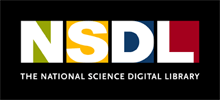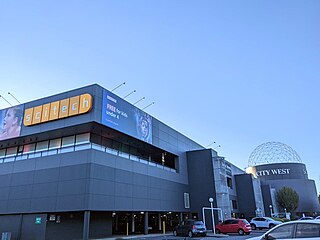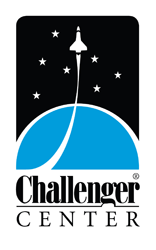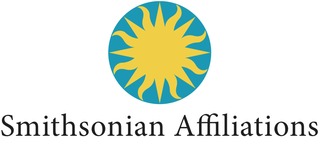Science education is the teaching and learning of science to school children, college students, or adults within the general public. The field of science education includes work in science content, science process, some social science, and some teaching pedagogy. The standards for science education provide expectations for the development of understanding for students through the entire course of their K-12 education and beyond. The traditional subjects included in the standards are physical, life, earth, space, and human sciences.

National Science Digital Library (NSDL) of the United States is an open-access online digital library and collaborative network of disciplinary and grade-level focused education providers operated by the Institute for the Study of Knowledge Management in Education. NSDL's mission is to provide quality digital learning collections to the science, technology, engineering, and mathematics (STEM) education community, both formal and informal, institutional and individual. NSDL's collections are refined by a network of STEM educational and disciplinary professionals. Their work is based on user data, disciplinary knowledge, and participation in the evolution of digital resources as major elements of effective STEM learning.

The Association of Zoos and Aquariums (AZA), originally the American Association of Zoological Parks and Aquariums, is an American 501(c)(3) nonprofit organization founded in 1924 and dedicated to the advancement of zoos and public aquariums in the areas of conservation, education, science, and recreation. AZA is headquartered in Silver Spring, Maryland, and accredits zoos. There were 238 accredited facilities as of 2019, primarily in the US, and also a handful in eleven other countries.

Northern Arizona University (NAU) is a public research university based in Flagstaff, Arizona. Founded in 1899, it was the final university established in the Arizona Territory.

The Kopernik Observatory & Science Center (KOSC), is a public observatory in Vestal, New York opened to the public on 16 June 1974 by the Kopernik Society of Broome County to commemorate the 500th anniversary of the birth of the astronomer Nicolaus Copernicus in 1973. Its mission is to offer hands-on investigations and outreach programs for educating all ages about astronomy and science using advanced optical telescopes, computers and other tools. It is the first science laboratory facility in New York State designed for K-12 teachers, students and their families, and has been one of the best-sited and best equipped public observatories in the Northeast United States for nearly the last 40 years.

Mote Marine Laboratory is an independent, nonprofit, marine research organization based on City Island in Sarasota, Florida, with additional campuses in eastern Sarasota County, Boca Grande, Florida, and the Florida Keys. Founded in 1955 by Eugenie Clark in Placida, Florida, it was known as the Cape Haze Marine Laboratory until 1967. The laboratory aims to advance marine science and education, supporting conservation and sustainable use of marine resources. A public aquarium and associated education program interpret its research for the public.

The Boonshoft Museum of Discovery is a children's museum, science and technology center and zoo in Dayton, Ohio, United States that focuses on science and natural history. Exhibits include an extensive natural history collection as well as maintaining a collection of live animals native to Ohio and abroad. Educational outreach extends to the community by providing in-school programming and on-site special programs. SunWatch Indian Village and Fort Ancient are the sister sites to the museum.

Explora is a science center in Albuquerque, New Mexico, United States, located near Old Town Albuquerque. Its name is the imperative form of the Spanish language verb explorar, which means to explore.

Scitech is a not-for-profit company encompassing the Scitech Discovery Centre, an interactive science museum in West Perth, Western Australia, outreach programs, professional learning programs and digital content.

Challenger Center for Space Science Education is a United States 501(c)(3) non-profit organization headquartered in Washington, DC. It was founded in 1986 by the families of the astronauts who died in the Space Shuttle Challenger disaster on January 28, 1986.

The Institute of Museum and Library Services (IMLS) is an independent agency of the United States federal government established in 1996. It is the main source of federal support for libraries and museums within the United States, having the mission to advance, support, and empower America’s museums, libraries, and related organizations through grantmaking, research, and policy development.” The agency carries out its charge as it adapts to meet the changing needs of our nation’s museums and libraries and their communities. IMLS’s mission is essential to helping these institutions navigate change and continue to improve their services. In fiscal year 2023, IMLS had a budget of $313.58 million. As of 2023, IMLS currently has 70 full-time employees, many of whom still work remotely. In 2022, the employees voted to unionize, joining hundreds of thousands of federal workers who have joined the American Federation of Government Employees (AFGE) to “build power and have a voice at work.”
Science outreach, also called education and public outreach or simply public outreach, is an umbrella term for a variety of activities by research institutes, universities, and institutions such as science museums, aimed at promoting public awareness of science and making informal contributions to science education.

The Cox Science Center and Aquarium, formerly the South Florida Science Center and Aquarium, is a science museum located in West Palm Beach, Florida. Founded in 1959, the goal of the organization is to open every mind to science through the strategic programming of interactive exhibits and engaging community-based camps and events. The Cox Center has expanded since its creation and now houses over 50 hands-on exhibits, a planetarium, a 3000 square foot aquarium, a miniature golf course, and a large exhibit space that displays a temporary travelling exhibit. The Cox Center is a member of the Association of Science-Technology Centers program, which offers a membership that is redeemable at other ASTC science and technology centers around the world. The Cox Center occupies Dreher Park alongside the Palm Beach Zoo and offers deals for entrance into both facilities.
The Wade Institute for Science Education, based in Quincy, Massachusetts, United States, and founded in 1986, provides resources and professional development to informal and formal teachers of science, technology, engineering, and mathematics.

The Exploratorium is a museum of science, technology, and arts in San Francisco, California. Founded by physicist and educator Frank Oppenheimer in 1969, the museum was originally located in the Palace of Fine Arts and was relocated in 2013 to Piers 15 and 17 on San Francisco's waterfront.
MERLOT is an online repository and international consortium of institutions of higher education, industry partners, professional organizations, and individuals. MERLOT partners and members are devoted to identifying, peer reviewing, organizing, and making available existing online learning resources in a range of academic disciplines for use by higher education faculty and students.

The Newark Museum Explorers Program is a year-round work-based, college-preparatory, and mentoring program that supports Newark high school students in their exploration of the sciences and humanities, and pursuit of a college education. The program is run from the Newark Museum in Newark, New Jersey, United States.

Smithsonian Affiliations is a division of the Smithsonian Institution that establishes long-term partnerships with non-Smithsonian museums and educational and cultural organizations in order to share collections, exhibitions and educational strategies and conduct joint research. Partner organizations are known as "Smithsonian Affiliates".
Caren Beth Cooper is an American professor and scholar at North Carolina State University, citizen science advocate, and author of two books on citizen science. Her doctoral dissertation addressed the effects of habitat fragmentation on the Australian passerine. Her scientific publications concentrate primarily on ornithology as well as citizen science contributions to science and diversity, equity, and inclusion in underserved communities.












